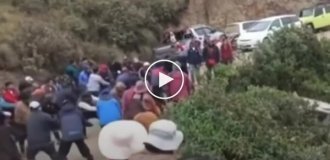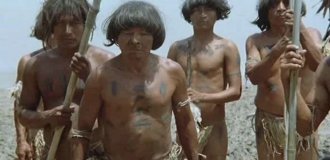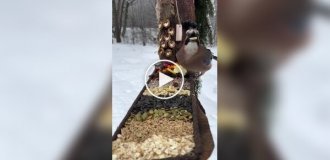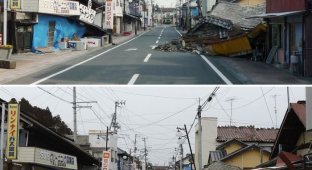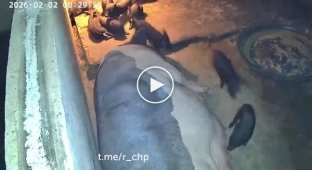Excursion to a gypsy camp. Photo report (36 photos)
“Don’t play around, otherwise I’ll give it to the gypsy!” - I have heard more than once how mothers scare their children like this. But who are the gypsies, and why is everyone so afraid of them? Do they really hypnotize people and scam them out of money? Who is the Baron and how does he live? I went to a gypsy camp for answers to these questions.

One day I was driving out of town and noticed strange cardboard houses along the side of the road. Looking at the house on the map, I saw that it was a gypsy village. I was very surprised - I would never have thought that this could happen for real in Chelyabinsk. Since then, the thought of visiting there has not left me. And now, by chance, we are already on our way.
Both camps are located at the exits from the city, on opposite sides. We choose the one in which, as it turns out, our driver has an acquaintance. On the way, everyone jokes, remembering quotes from the movie “Snatch”, waiting for how they will try to “sell” us a van and “a dog into the load”...
And here we are. I see in front of me one-story houses made of plywood boards. The houses are gray and dirty, there are only about 25–30 of them. The first we see is a gypsy woman, who is driving geese into a pen. I am in a hurry to get my camera, but I don’t have time.
Our car stops and suddenly, children appear from all the cracks and stick around the car. It becomes uneasy.

A boy in a red T-shirt has just left the Priora and is holding keys and a cell phone.
Gypsies have an unusual skill - they suddenly appear out of nowhere and disappear just as unexpectedly. A man comes up to us and asks why we stopped by. Having explained that we want to photograph everyday life, they give us permission. Interestingly, this is not particularly important, because, as it turned out, each of them gives his own permission without asking the others, and the others may be against it.
I start taking pictures, and there is a crowd of children around me. Everyone shouts “Uncle, take a picture of me!” and climb into the frame. Just some kind of horror begins... Everyone is running after me, touching my hands, trying to take off my glasses. The girl next to her sits in a puddle and starts going to the toilet...
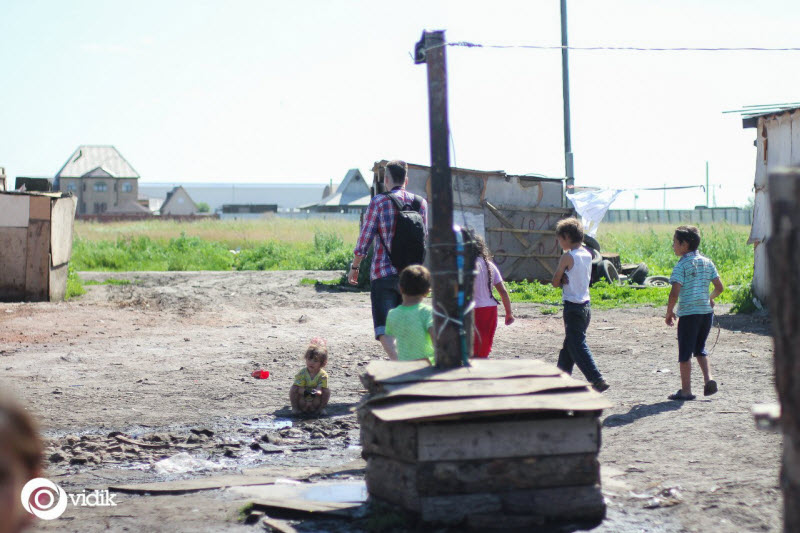
Our driver Seryoga has been here several times and says that it’s better to take a photo of them or pretend they won’t leave you behind anyway. I start photographing the children, and with each frame they do not calm down, but on the contrary, they scream louder and ask to be photographed more of them. At the same time, they all push and get into the frame first.

The village consists of several improvised streets. About 30 families live here.

Soon the son of one of the authoritative men in the camp, Valera (in a blue T-shirt on the left), appears and tells us that there is mourning in the camp and for now it is better for us not to take photographs here, but to come in a week. We understandably hang cameras around our necks.

But at the same time, he himself asks to photograph some of the children who do not calm down... I am completely confused and continue to take pictures.



Adult men are slowly flocking to the street. At first everyone looks very stern and asks about the purpose of our visit and seems to prohibit us from filming, but then they themselves pose and try to get into the frame.

And one gypsy even sat down beautifully and asked to be photographed.

And the most active boy who left Priora

I gradually move towards the car, fearing for my pockets; my partners are also already getting in. I calmed down a little only when I sat in the back seat behind the tinted windows and closed the door with the button. Now children climb into the car, not allowing the door to close, and shout “Uncle, give me a penny!”

With a struggle, we close the car door and drive off. I pray that the car doesn't break down and we leave quickly. Several gypsies are still running after us...
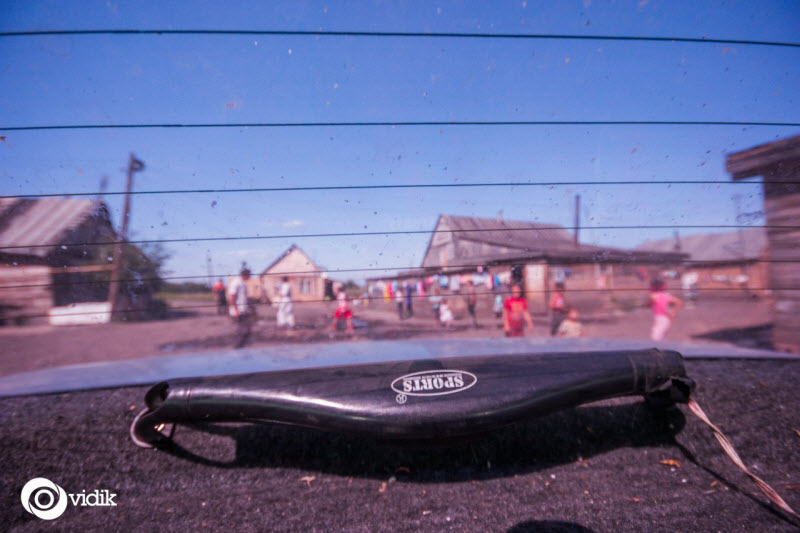
Naturally, we are not satisfied with this result and decide to go to the second camp, which is located at the other end of the city. Arriving at the place, we see exactly the same houses. But if in the first camp we had at least some acquaintance, here we don’t know anyone at all. Therefore, having arrived, we sit in the car for a few more minutes, anticipating what is about to begin...

But here everything begins to develop in a slightly different scenario. The woman notices us first, and within 30 seconds she turns from one to several with children. When the children see the camera, they immediately ask to take a photo of them, but not as brazenly as in the first camp, but in a much more civilized manner. The woman pulls her child away, not wanting him to be in the frame.
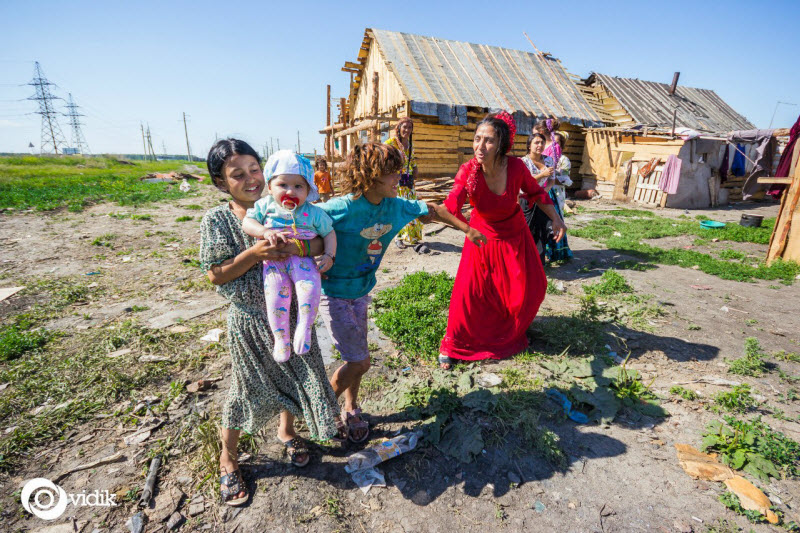
But this doesn’t really bother him (or her). Everyone is already laughing, including mom.

In this camp everything happens much calmer. The gypsy women begin to tell us that they want to take away their village, and everyone says the name Davydov. They say that people with cameras have already come to them and filmed something. They communicate calmly and politely, even for a while it becomes interesting and pleasant to talk with them. The difference with the first village is striking.
We are sent to the baron for permission to film, and we begin to look for his house. Along the way, we are watched from everywhere and examined with interest. But the children behave decently, do not scream or run in a crowd.
The baron's house was not found immediately, try to distinguish these houses...

And already near the house we were met by several adult and strong men and began to ask, as they say, “uncomfortable questions.” It's starting to feel uneasy here. Stereotypes about gypsies prevent the brain from adequately perceiving reality.
Having somehow explained to them why we came, we see a car approaching the house. “And here the baron has arrived from the store!”
I immediately imagine that some healthy black-haired man in gold chains and a fur coat covering his naked body is about to come out, but a very pleasant and friendly man named Yura comes up to us. At least that's how he introduced himself to us. I'm talking about our filming.

He invites us into the house. I feel terrified, about a dozen men come up from behind and all insistently offer to enter the house and “drink tea.” We finally agree and head inside. The most terrible pictures are spinning in my head.
Having passed the small hallway, we immediately find ourselves in the kitchen. We sit down at the table and men stand along the walls, the baron sits down at the table with us. Everyone else is standing. Looking at all this, a strong association arises with a scene from the movie “Snatch”. One baron talks to us in the same way, but all the other men complement his answers.

A woman is fussing around the stove - the baron's wife. And soon three glasses on saucers appear on the table, each of which contains a plum. My colleagues and I look at each other in bewilderment. But it soon turns out that this is the traditional preparation of tea. An ordinary tea bag is placed in the same mug and boiled water is poured over it.
In the upper left part of the frame, you can see those same gypsies standing along the walls.

We start a conversation with Yuri, and I explain that my goal is to show the gypsies as ordinary people in my report. To show that gypsies are people like everyone else, and that humanity is not alien to them. For some reason, the first questions we ask are about the wedding.
— A traditional wedding, what is it like?
— We marry children at the age of 12...
At first we think it's a joke, but Yura smiles and begins to explain.
— When a boy is already 12, it’s time to get him married. His father talks to the father of some girl and they agree to get married.
No one will ask a boy, let alone a girl. Everything has already been decided for them.
Why do children get married so early? This is necessary so that the boy, as a future man, gets used to being responsible from childhood and understands that he has a family that needs to be fed and protected. The wedding lasts three days and is not much different from our traditional wedding.
While this conversation is going on, some food appears on the table. I’m already, completely emboldened and forgetting about the fact that “they’re trying to poison me,” I’m devouring a sandwich. And the men, as if completely relaxed, go about their business, and one sits down at the table with us.

Just on the day of our arrival, a gypsy from Samara was staying in the camp, who had come to visit for several days. He also seemed quite friendly and sociable. A boy walks around the house without pants, chewing something, and next to him is a “doggie.”

I choose a moment and ask the question that worries me most: “Why don’t you live in apartments, but build your own houses” and when I receive the answer, I am shocked.
“Women shouldn’t be above men.” This is wrong and unacceptable.
It turns out that among the gypsies it is a terrible crime if a woman is on the second floor, above the man’s head.
“She should know her place and always be lower,” Yura shows us with his hand.
We touch on the topic of hierarchy and it turns out that this also applies to food. Women cannot eat at the same table with men - they eat after. But if a woman is already old and wise, then sometimes she is allowed to sit at the table, expressing respect. Moreover, the lower part of a woman’s body is considered inherently defiled. And the clothes a woman wears below the waist. A man will never touch her.
Traditionally, a woman should have a long skirt that reaches the floor. Men's traditional clothing is a papakha. Having told about this, Yuri runs into the room to look for a hat in the closet. He dresses her for the photo.
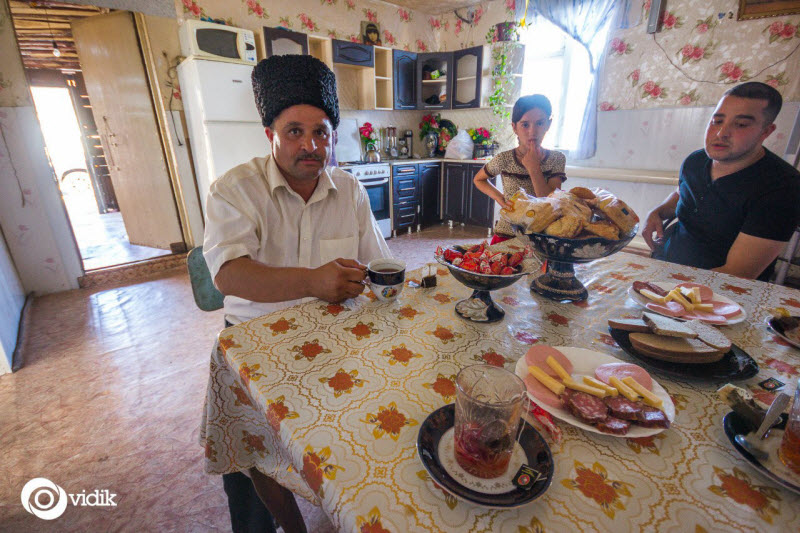
“It was left to me from my grandfather.” It’s a shame for a man when he doesn’t have such a headdress, especially if you’re a baron,” says Yura. But today traditions are being omitted, because we live in the modern world, and hats are worn only on holidays.
The Baron, by the way, is elected by the entire camp. His tasks include monitoring order in the camp, resolving disputes, controlling money, etc. Baron is such a local and 100% respected “president”. It is very important that there is order in the camp. First of all, so that other gypsies from other cities can never say that there is something bad in our camp.
Every evening, the gypsies gather for a “five-minute meeting.” Here the camp discusses how everyone is doing, who has done what, how things are at work, etc. By the way, Chelyabinsk gypsies work with metal. They even call themselves “metal scrappers.” That’s why young Roma men don’t take pictures—they’re afraid.
— Are you friends with the Russians? Does it happen that they come to the camp? - I ask and realize that I am asking a stupid question. I myself am sitting, drinking delicious tea and treating myself to some simple food.
— Of course, Russian friends often visit us, and we communicate with the neighboring village.
— Is there marriage between Russians and Gypsies?
- No way! It is unacceptable!
It is very interesting to communicate with Yuri. He tells us about the problems.
— The city administration does not want to provide papers confirming the ownership of the land, so we cannot build normal, good houses. What if they kick us out? Now I am in negotiations with Davydov, and I hope that soon everything will work out for us, and we will be able to legally live on our land.

It turns out that the gypsies who sit on the streets with babies are just as hated by real gypsies as they are by you and me. They are called “lyuli”. Lyuli is a disgrace to the gypsy family. By the way, they are Orthodox. But there are also Muslims, they are called “Kharohane”. Yura also has a negative attitude towards the gypsies who undress people at the station. “This is just robbery!” says Yuri.
The house becomes stuffy and hot from the tea and we go outside.
There is a cat with kittens in the hallway.

And on the other hand - a dog.

On the street, women boil water. The children here, by the way, are all dirty and grimy. But it even looks funny. But everyone is full and happy.

While we are walking and taking photographs, a taxi arrives at the camp. At first I thought I was hallucinating, and then I saw that it was the gypsies who had arrived home.

One house here generally looks decent, and it even has a satellite dish, which doesn’t really fit in with the general chaos in the village. By the way, this camp also has about 30 houses and 30–40 families.

And other houses look, for example, like this:

We are talking with Yuri and a woman walks past us. “Turn around!” she screams. We look at Yura in bewilderment and he smiles and says:
“If a woman is walking down the street and sees men standing, she should tell them to turn away so that they don’t look at her.”
If she doesn't do this, then in the evening the women will ask her if she is ashamed that other men looked at her and she did not tell her to turn away. If she answers that she is not ashamed, then the women will beat her. Like it, right?
“I like it,” I answer and say that I even envy the traditions of the gypsies in some ways.

Back in the house, I look at the paintings in the kitchen. There is also a small kitchen TV here.

And in the room you can already watch a movie on a wide screen.


The house has heating and it is hot here in winter. You can't tell that when you look at these houses from the outside.
And now our time is coming to an end, and we need to leave. To be honest, now I don’t even want to. There was no trace left of the fear that was there at the beginning. No one poisoned us or buried us in the camp. And what's more, we left without even buying a van. And no one “pushed” the dog to us.
It turns out that real gypsies are hospitable, calm people who respect their traditions. I sincerely hope that Yuri will soon solve his problems with the land and the city administration, and our Roma friends will be able to build themselves strong and comfortable houses on their land.



